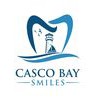Downeast Dental has purchased my practice. Our office provides specialized dentistry for children and adolescents in a warm, caring and "child-friendly" environment. As pediatric dentists, our 2-3 years of additional training after dental school has prepared us for the unique dental needs of each child we serve. We focus on preventive care to help each child grow a healthy smile that will last a lifetime. Our office serves infants, children, teens and children with special health care needs in Portland, Maine.
Services
Dr. Susan Russett-Collett has been a Pediatric Dentist in Portland, Maine since 1984. She received her undergraduate degree, a BA in Psychology, from Williams College in 1978, and her dental degree from New York University College of Dentistry in 1982. Dr. Russett-Collett went on to complete her 2 year Pediatric Dental Residency at Beth Israel Medical Center in New York City in 1984.
Our office, as well as the The American Academy of Pediatrics (AAP), the American Dental Association (ADA), and the American Academy of Pediatric Dentistry (AAPD) all recommend establishing a "Dental Home" for your child by one year of age. Children who have a dental home are more likely to receive appropriate preventive and routine oral health care.
The office attempts to schedule appointments at your convenience and when time is available. Preschool children should be seen in the morning because they are fresher and we can work more slowly with them for their comfort. School children with a lot of work to be done should be seen in the morning for the same reason.
For more information concerning pediatric dentistry, please visit the website for the American Academy of Pediatric Dentistry. The pediatric dentist has an extra two to three years of specialized training after dental school, and is dedicated to the oral health of children from infancy through the teenage years.
If the procedure was in the lower jaw the tongue, teeth, lip and surrounding tissue will be numb or asleep. If the procedure was in the upper jaw the teeth, lip and surrounding tissue will be numb or asleep. Often, children do not understand the effects of local anesthesia, and may chew, scratch, suck, or play with the numb lip, tongue, or cheek.
Reviews

Be the first to review Susan Russett-Collett, DDS.
Write a Review